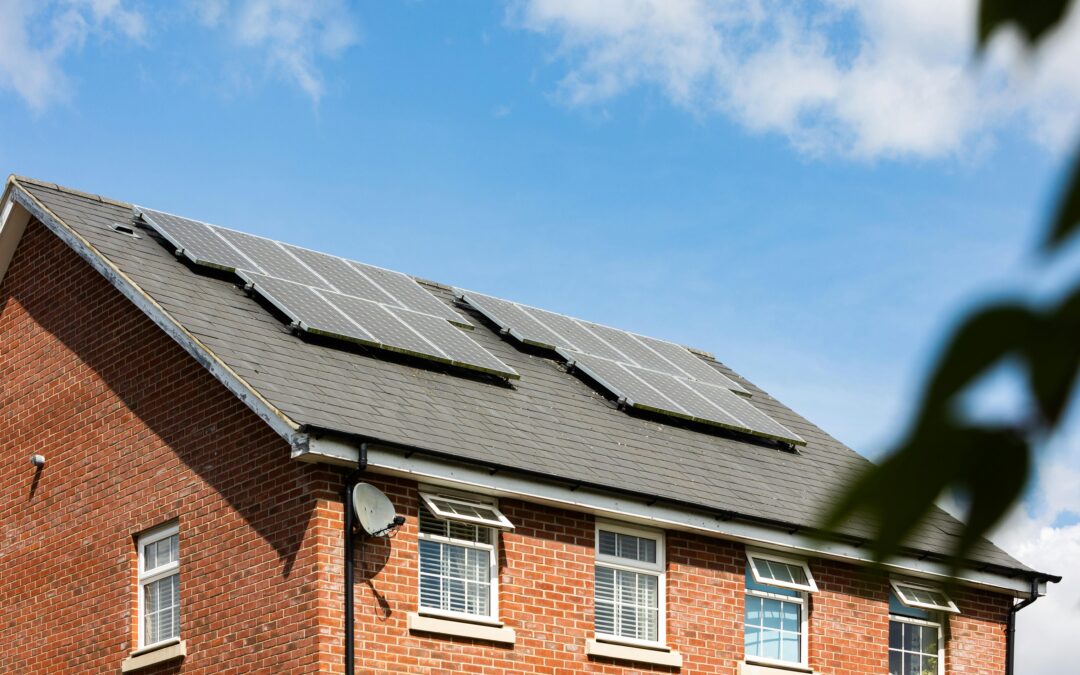Beat Power Outages and Rising Costs: Go All-Electric and Save Thousands!
With rising utility costs and growing concerns about environmental impact, many homeowners are considering converting their homes to all-electric power. The shift away from traditional gas-powered systems to a fully electric setup offers financial benefits, increased energy independence, and the potential to future-proof your home. As power costs continue to rise, investments in solar energy, battery storage, and electric appliances are making more sense all the time.
In this article, I’ll share our personal experience of transitioning our own home to electric power and discuss the pros and cons of making this change. As always, Gordon Reese Design Build is here to help guide you through your own transition to a more energy-efficient home.
Our Personal Experience: A Real-Life Example
In our home, we’ve already made substantial progress toward converting to all-electric power. We installed an 11 kW solar power system paired with 26 kW of battery storage, giving us the ability to generate and store the energy we use. Our home now includes an electric dryer, electric water heater, electric fireplace, and car chargers for our two electric vehicles. The only gas use in our home is for our furnace and cooktop.
Before making these upgrades, our monthly power bill ranged from $600 to $1,000. Now, with our solar and battery system in place, our monthly loan payment for the system is around $350. Not only are we saving money each month, but the savings increase with each utility price hike. And with the ability to store energy in our batteries, we are largely insulated from the rising costs of electricity.
One of the standout benefits of our system is that, during power outages, we don’t even know the grid is down. Our system automatically switches to battery power, ensuring that our home stays fully operational, regardless of external issues with the power supply. This peace of mind alone makes the investment worthwhile, particularly in areas where outages are common.
The Benefits of Converting to Electric
- Lower Utility Costs Over Time: With power costs on the rise, solar panels and battery storage offer a buffer against unpredictable utility bills. While the initial cost of installation might seem high, the long-term savings can be substantial, especially as energy prices continue to climb. Over time, your investment in solar and electric systems will pay for itself, and in many cases, will cost less than your current gas and electric bills.
- Energy Independence: Relying on renewable energy sources such as solar allows you to produce your own power. This means that fluctuations in utility rates have less impact on your monthly budget, and in the event of a grid failure, you have a backup power source in the form of your battery storage.
- Eco-Friendly: Reducing or eliminating your reliance on natural gas helps reduce your carbon footprint. By powering your home with renewable energy, you are contributing to a cleaner, greener future while simultaneously increasing the value of your home.
- Increased Resilience: As mentioned, having a solar and battery system installed ensures that you’re less reliant on the grid. In our personal case, when the power goes out, our system seamlessly switches to stored battery power, keeping our home fully powered without interruption. This benefit can be particularly useful in areas prone to extreme weather events or frequent outages.
The Downsides to Consider
While there are many benefits to converting your home to electric power, there are a few downsides to consider:
- Upfront Costs: The initial installation of solar panels, battery storage, and electric appliances can be costly. However, financing options, tax incentives, and rebates can help reduce the upfront burden. In our case, the monthly loan payment for our system is significantly lower than what we were paying in utility bills, making the investment worthwhile from day one.
- Space Requirements: Solar panels and battery storage systems can take up significant space. You’ll need sufficient roof space for solar panels, and a designated area for batteries, which may not be feasible for smaller homes or those with limited yard space.
- Transition Period: Converting an entire home from gas to electric can be a gradual process. In our case, we still have a gas furnace and cooktop, though we plan to eventually transition these systems to electric as well. For many homeowners, the shift will occur over several years as appliances are replaced or new systems are installed.
Conclusion: Is It Worth It?
For us, the answer has been a resounding yes. By converting our home to mostly electric power, we’ve not only reduced our monthly expenses but also gained peace of mind during power outages and shielded ourselves from rising utility costs. While the upfront investment can be substantial, the long-term benefits—both financial and environmental—make it a smart choice for many homeowners.
If you’re considering making the switch to an all-electric home or want to learn more about how solar power, battery storage, and electric appliances can benefit your household, Gordon Reese Design Build is here to help. We specialize in remodeling homes with a focus on energy efficiency, including additions, kitchens, bathrooms, ADUs, and whole-home upgrades. Contact us today to explore how we can help you through the transition and create a more energy-independent future for your home.


Recent Comments